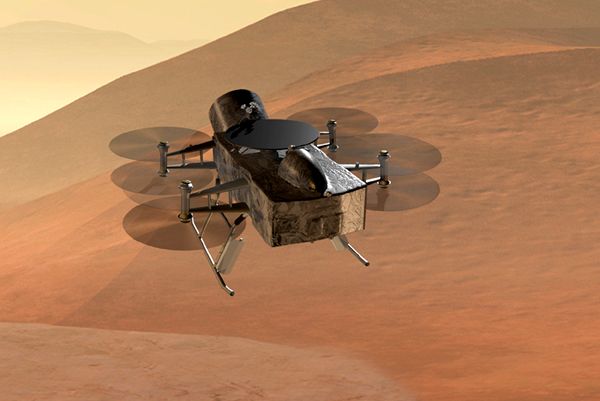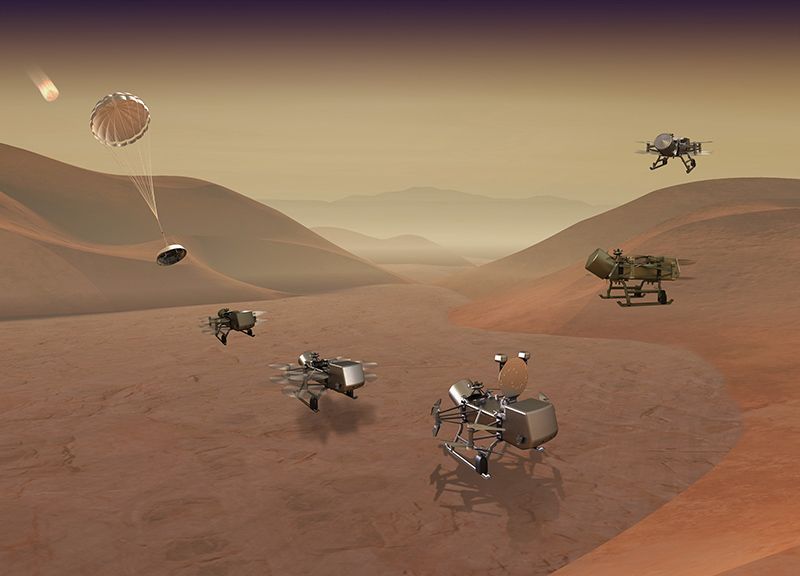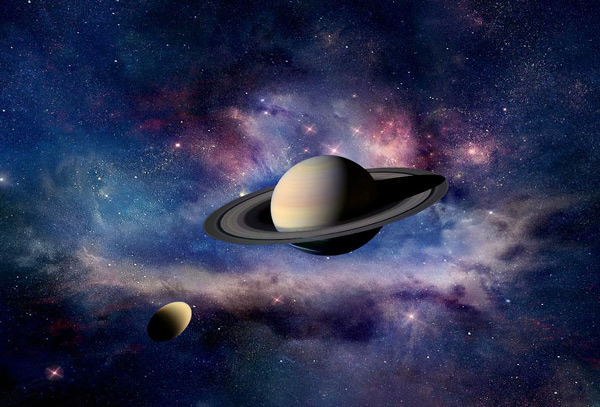Dragonfly mission of NASA to search for signals of life on Titan

The National Aeronautics and Space Administration (NASA) has came up with the Dragonfly mission to search for the presence of life in Saturn’s largest moon, Titan. The mission is estimated to cost $1 billion.
NASA said that the Dragonfly mission will be launched in 2026 and will land in 2034. The rotorcrafts which will be sent by the Dragonfly drone will be flying to various locations across the icy moon, and this will be viewed by the scientists. Nasa said that there will be 8 rotors in this spacecraft.

Titan, the largest moon of Saturn and the second-largest natural satellite in the Solar System is the only moon known to have a dense atmosphere. Titan is thought to be a prebiotic environment rich in complex organic chemistry, with a possible subsurface liquid ocean serving as a biotic environment.
Since Titan has lakes of methane, the scientists doubts the presence of methane based lives there. No presence of water has been detected in Titan.

NASA administrator Jim Bridenstine said, “Visiting this mysterious ocean world could revolutionize what we know about life in the universe”. About the Dragonfly mission, he said, “This cutting-edge mission would have been unthinkable even just a few years ago, but we’re now ready for Dragonfly’s amazing flight”.
WATCH THE VIDEO ON DRAGONFLY MISSION – BY NASA
Image / video courtesy: parman .blogspot .com, nature .com, news. stanford .edu, YouTube / images / videos are subject to copyright
